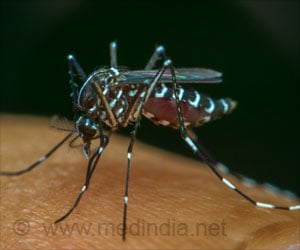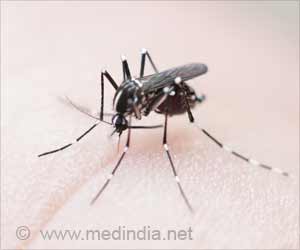As Singapore gears up for a virtual explosion of dengue across the city state, the National Environment Agency (NEA) will haul a man to court for allegedly breeding mosquitoes.
Singapore might be prosperous. But it is also draconian. Any presumed violation of the law brings in swift reaction.
As the owner of a commercial fishing pond in Pasir Ris Drive 6, will have found by now. He is being prosecuted for breeding mosquitoes. The area is dubbed the number one dengue hotspot in the nation, reporting close to 40 new cases as of Wednesday.The National Environment Agency (NEA) believes a pumping station in the pond is the main culprit. Its officers found over 600 mosquito larvae there.
"This pumping station happens to be en route for residents going to the MRT station. Though we have destroyed the breedings, we believe some of the mosquitoes may have found their way into the nearby homes," said Silachart Lau, GM of Northeast Regional Office, NEA.
If found guilty, the owner of the fishing pond could be fined a maximum of S$5,000 or face a jail term of up to three months, or both.
NEA said the cluster at Pasir Ris Drive 6 stands out for the large number of outdoor breeding grounds found.
Health officials have been combing public housing estates in search of mosquito breeding sites. Dengue-carrying insects breed in tiny pools of water found in flower pots, discarded bottles or cans, or old tires.
Advertisement
He had also warned that households found to have mosquito breeding sites would be fined.
The disease, which causes joint pain, high fever, nausea and a rash, is endemic to the region. In severe cases, it leads to internal bleeding and sometimes death.
Though known for making a fetish of cleanliness, these days Singapore, the island of nation of 4.5 million, is unable to escape the fury of dengue, generally associated with poorer tropical countries.
The disease had killed 25 people and infected thousands in 2005. This year too the country is witnessing some virulent outbreak.
Health Minister Khaw Boon Wan said based on the data in the last few weeks, the situation did not look optimistic.
He added that if the wet weather continued, Singapore can expect more dengue cases occupying hospital beds.
He said: "In 2005, as many as 300 beds were taken up. It was very inconvenient for patients because the elective cases would have to be rescheduled. I hope we will never reach such an extent, but we can't tell.
"Elective cases are non-emergency cases, so instead of having immediate surgery, one may have to push the date back until this whole outbreak is over."
Mr Khaw said the main problem is that mosquitoes now carry a different strain of dengue that causes more people to come down with the illness.
Source-Medindia
GPL/M










